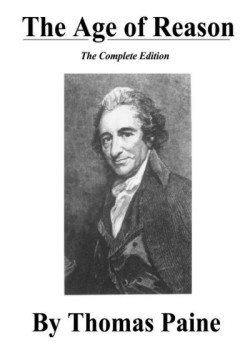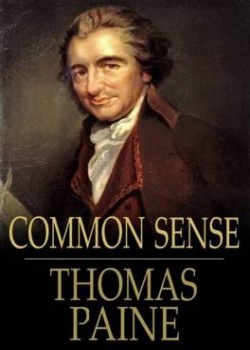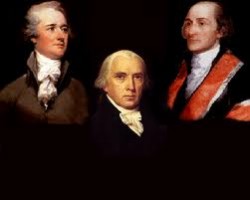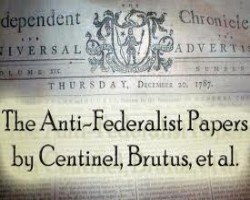HISTORY OF THE COLONIES
CHAPTER V
NEW-HAMPSHIRE
§ 78. Having gone into a full consideration of the origin and political organization of the primitive colonies in the South and North, it remains only to take a rapid new of those, which were subsequently established in both regions. An historical order will probably be found as convenient for this purpose, as any, which could be devised.
§ 79. In November, 1629, Capt. John Mason obtained a grant from the council of Plymouth of all that part of the main land in New-England "lying upon the seacoast, beginning from the middle part of Merrimack river, and from thence to proceed northwards along the sea-coast to Piscataqua river, and so forwards up within the said river and to the furthest head thereof; and from thence northwestwards until three score miles be finished from the first entrance of Piscataqua river; and also from Merrimack through the said river and to the furthest head thereof, and so forwards up into the lands westwards, until three score miles be finished; and from thence to cross over land to the three score miles and accounted from Piscataqua river, together with all islands and islets within five leagues distance of the premises." This territory was afterwards called New Hampshire. The land so granted was expressly subjected to the conditions and limitations in the original patent; and there was a covenant on the part of Mason, that he would establish such government therein, and continue the same, " as shall be agreeable, as near as may be, to the laws and customs of the realm of England;" and that if charged with neglect, he would reform the same according to the discretion of the president and council; or in default thereof, that the aggrieved inhabitants, or planters, tenants of the lands, might appeal to the chief court of justice of the president and council. A further grant was made to Mason by the council of Plymouth about the time of the surrender of their charter, (22 April, 1635,) "beginning from the middle part of Naumkeag river [Salem], and from thence to proceed eastwards along the sea-coast to Cape Ann and round about the same to Piscataqua harbour; and then covering much of the land in the prior grant, and giving to the whole the name of NewHampshire." This grant included a power of judicature in all cases, civil and criminal, "to be exercised and executed according to the laws of England as near as may be," reserving an appeal to the council. No patent of confirmation of this grant appears to have been made by the crown after the surrender of the Plymouth patent.
§ 80. Various detached settlements were made within this territory; and so ill defined were the boundaries, that a controversy soon arose between Massachusetts and Mason in respect to the right of sovereignty over it. In the exposition of its own charter Massachusetts contended, that its limits included the whole territory of New-Hampshire; and being at that time comparatively strong and active, she succeeded in establishing her jurisdiction over it, and maintained it with unabated vigilance for forty years. The controversy was finally brought before the king in council; and in 1679 it was solemnly adjudged against the claim of Massachusetts. And it being admitted, that Mason, under his grant, had no right to exercise any powers of government, a commission was, in the same year, issued by the crown for the government of New-Hampshire. By the form of government, described in this commission, the whole executive power was vested in a president and council appointed by the crown, to whom also was confided the judiciary power with an appeal to England. In the administration of justice it was directed, that " the form of proceedings in such cases, and the judgment thereon to be given, be as consonant and agreeable to the laws and statutes of this our realm of England, as the present state and condition of our subjects inhabiting within the limits aforesaid, and the circumstances of the place will admit." The legislative power was entrusted to the president, council, and burgesses, or representatives chosen by the towns; and they were authorized to levy taxes and to make laws for the interest of the province; which laws being approved by the president and council were to stand and be in force, until the pleasure of the king should be known, whether the same laws and ordinances should receive any change or confirmation, or be totally disallowed and discharged. And the president and council were required to transmit and send over the same by the first ship, that should depart thence for England after their making. Liberty of conscience was allowed to all Protestants, those of the Church of England to be particularly encouraged. And a pledge was given in the commission to continue the privilege of an assembly in the same manner and form, unless by inconvenience arising, there from the crown should see cause to alter the same. A body of laws was enacted in the first year of their legislation, which, upon being sent to England, was disallowed by the crown. New Hampshire continued down to the period of the Revolution to be governed by commission as a royal province; and enjoyed the privilege of enacting her own laws through the instrumentality of a general assembly, in the manner provided by the first commission. Some alterations were made in the successive commissions; but none of them made any substantive change in the organization of the Province. The judicial power of the governor and council was subsequently, by law, confined to the exercise of appellate jurisdiction from the inferior courts; and in the later commissions a clause was inserted, that the colonial statutes should "not be repugnant to, but as near as may be agreeable, to the laws and statutes of the realm of England."
§ 81. The laws of New-Hampshire, during its provincial state, partook very much of the character of those of the neighbouring Province of Massachusetts. Those regulating the descent and distribution of estates, the registration of conveyances, the taking of depositions to be used in the civil courts, for the maintenance of the ministry, for making lands and tenements liable for the payment of debts, for the settlement and support of public grammar schools, for the suppression of frauds and perjuries, and for the qualification of voters, involve no important differences, and were evidently framed upon a common model. New-Hampshire seems also to have had more facility, than some other colonies, in introducing into her domestic code some of the most beneficial clauses of the acts of parliament of a general nature, and applicable to its local jurisprudence. We also find upon its statute book, without comment or objection, the celebrated plantation act of 7 & 8 William 3, ch. 22, as well as the acts respecting inland bills of exchange, (9 & 10 William 3, ch. 17) and promissory notes, (4 Ann, ch. 9) and others of a less prominent character.







The most important project on this website is "THE WORKS."
This is the place where you can read the words of the founding fathers and those who had a VERY BIG part in the founding of this country.
Not only do we have the Federalist and the Anti-Federalist Papers, but we also have other Constitutional Commentaries that were written shortly after the Constitution was ratified.